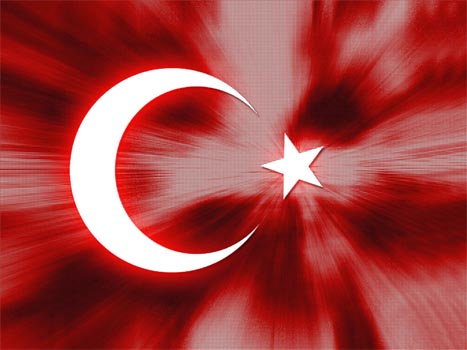Turkey's displaced Kurds often cannot return home
 Diyarbakir, Turkey - Yildiz Kardas has long stopped thinking seriously about returning to her village in south-eastern Turkey. It was destroyed 19 years ago.
Diyarbakir, Turkey - Yildiz Kardas has long stopped thinking seriously about returning to her village in south-eastern Turkey. It was destroyed 19 years ago.
"The fields are there, but we haven't tilled them for years," said Kardas, a 47-year-old Kurd.
Displaced in the conflict between the Turkish army and the separatist Kurdistan Workers' Party (PKK), Kardas fled to Diyarbakir, a provincial capital about a hour's drive from the village.
"The house burned down along with the tractor," she said. "And we haven't got money to rebuild." At the time, Kardas recalled, there were gun battles and attacks in her region.
Because her family refused to join the "village guards," an anti- PKK militia formed by the government, they were accused of being PKK supporters.
She said the guards rounded up the men in front of the mosque and set fire to houses in the village, known to her only by its Kurdish name: Sexomera. Of the some 150 families in the village, about 20 have since returned.
The Kardas family has stayed in Diyarbakir for more than financial reasons. After all, they had enough money for a small house in a poor district abutting the historic city wall after selling the last of their livestock.
Kardas pointed out that her 10 children had grown up in the city and lacked the skills of the village's small-scale farmers, who often had cultivated just three or four hectares.
According to human rights groups, some 4,000 villages have been abandoned and 3 million people displaced since the PKK began its armed struggle in the 1980s.
Turkish authorities have cited smaller numbers: about 1,300 villages and between 700,000 and 1 million people. Diyarbakir's population, previously 375,000, grew to 1 million by 2000. It is now about 855,000.
"There's no systematic policy for the farmers' return to their villages," criticized Irfan Ucar, spokesman for Diyarbakir's municipal administration.
Most of the villagers remaining in the city are weak, he said, noting that those who were stronger and better educated had moved to more prosperous western Turkey or had left the country altogether.
Meanwhile, city officials have tardily set up a training programme aimed at helping the villagers master city life. Participants can choose among 13 occupations, including tailor, bookkeeper, secretary, computer specialist and cabinetmaker.
Only 40 per cent of the displaced persons who are able to work have a job, Ucar said. The 60 per cent who are unemployed are often without hope or opportunities.
The Turkish newspaper Radical reported recently that nearly half of Turkey's Kurds, who number at least 12 million, were considering moving to another place.
It said that 13.4 per cent felt their situation was hopeless and strongly wanted to go. More than a third were weighing a move, but with less urgency.
Asked if Turkish Kurds would leave the country in large numbers and head to Europe if Turkey joined the European Union, Ucar pointed to the results of a survey of Turkish Kurds and said, "People with a job, a life, don't want to leave their homeland.
"If Diyarbakir were a metropolis with industry and jobs, they all would want to live here, not in Istanbul. And not in Berlin either." (dpa)